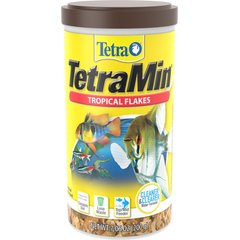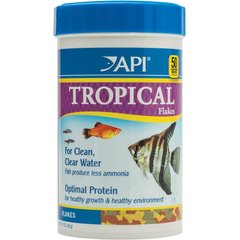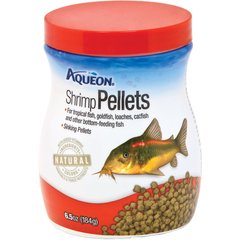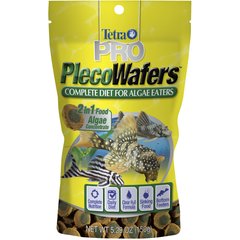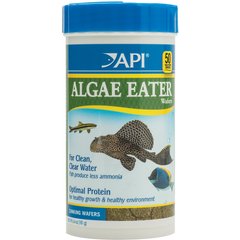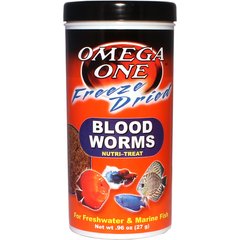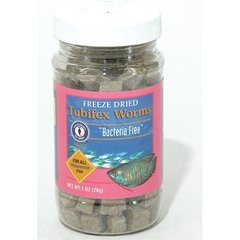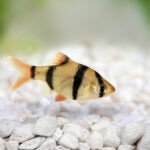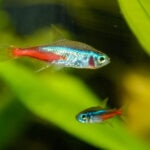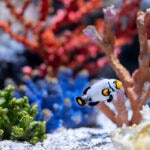What Do Fish Eat? A Guide To Feeding Your Pet Fish
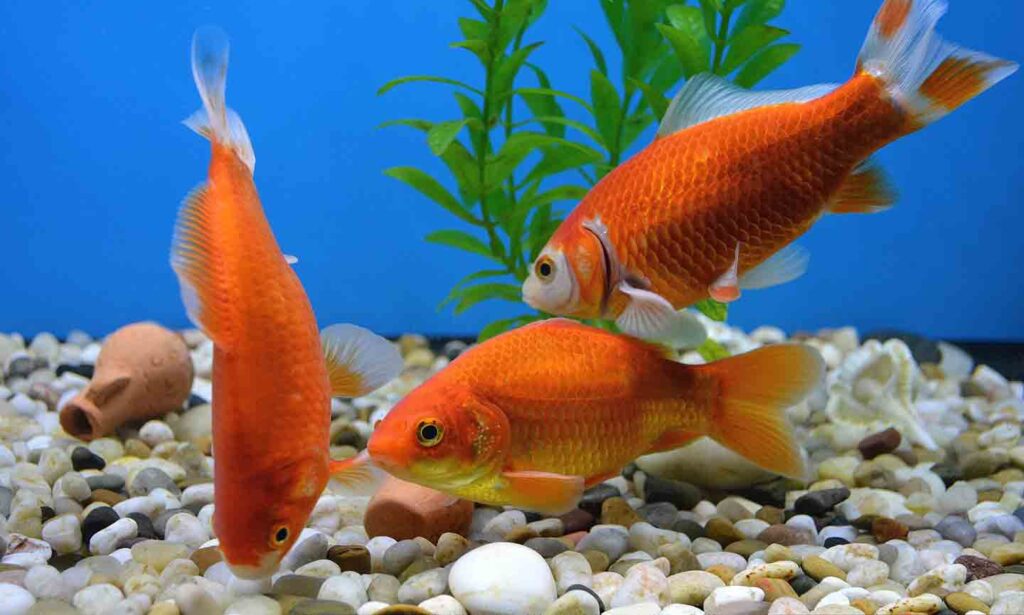
Photo by ziggy1 via Getty Images
One of the most common mistakes hobby aquarists make is overfeeding. A nutritious diet is essential for keeping fish healthy, but excess food won’t be eaten and will just break down in the aquarium, leading to poor water quality and stressful conditions for your fish. The right diet makes all the difference, but it’s also important to know how to correctly feed your fish. So, what do fish eat?
What Do Fish Eat?
Wild fish eat a variety of foods. This includes insects,small crustaceans,vegetation, small fish and microorganisms like zooplankton. In the home aquarium, most fish are offered a diet of commercial fish food. Fish flakes are one of the most common options, but there are many other types of fish food to consider.
Here are some of the fish foods you’ll find:
- Flakes
- Pellets
- Wafers
- Freeze-dried food
- Frozen fish food
- Live fish food
Little is known about the specifics of what nutrients fish require beyond the basics of herbivorous, carnivorous and omnivorous diets. According to the Merck Veterinary Manual, the best way to meet the nutritional requirements of fish is to offer them a wide variety of food types so all the nutritional bases are covered.
Let’s take a closer look at some of the most common types of fish food.
Flakes, Pellets and Wafers
The most common staple diets for aquarium fish are flakes, pellets and wafers. This is because they can be formulated for different types of fish.
Aquarium fish flakes are ideal for small fish because they can be crushed easily.
Recommended Products
Pellets come in various sizes and in both floating and sinking varieties.
Recommended Products
Wafers are typically designed to sink and are a popular choice for bottom-feeders like plecostomus and Corydoras catfish (Corydoras sp.).
Recommended Products
When it comes to choosing between flakes and pellets, Dr. Serena Brenner, MS, DVM, CertAqV, a consulting veterinarian and instructor at UC Davis School of Veterinary Medicine in Davis, California, says to offer the largest food a fish can safely consume.
Freeze-Dried Foods
While flakes and pellets are typically made with a variety of ingredients, freeze-dried foods tend to contain a single protein. Some of the most common freeze-dried fish foods are insects and aquatic crustaceans.
Examples of freeze-dried fish foods include:
- Tubifex worms
- Krill
- Brine shrimp
- Bloodworms
- Mysis shrimp
Larger, freeze-dried insects like mealworms and crickets may be appropriate for carnivorous fish.
Recommended Products
Live and Frozen Foods
Many freeze-dried fish foods are also sold in live or frozen form. Frozen fish food is typically sold in cubes, which should be thawed in a cup of tank water before being offered to your fish. These foods may contain a single ingredient such as bloodworms (midge fly larvae, sometimes called blind mosquito larvae) or may contain a combination of ingredients designed for specific diets.
Live foods like daphnia or brine shrimp can be offered directly. Just keep in mind when offering marine organisms like brine shrimp to freshwater fish that only the food should be offered, not the saltwater it came in. Adding saltwater to a freshwater tank can be harmful for your fish. Instead, net the brine shrimp from their original bag and add them to your fish tank rather than dumping them in along with the water they came in from the store.
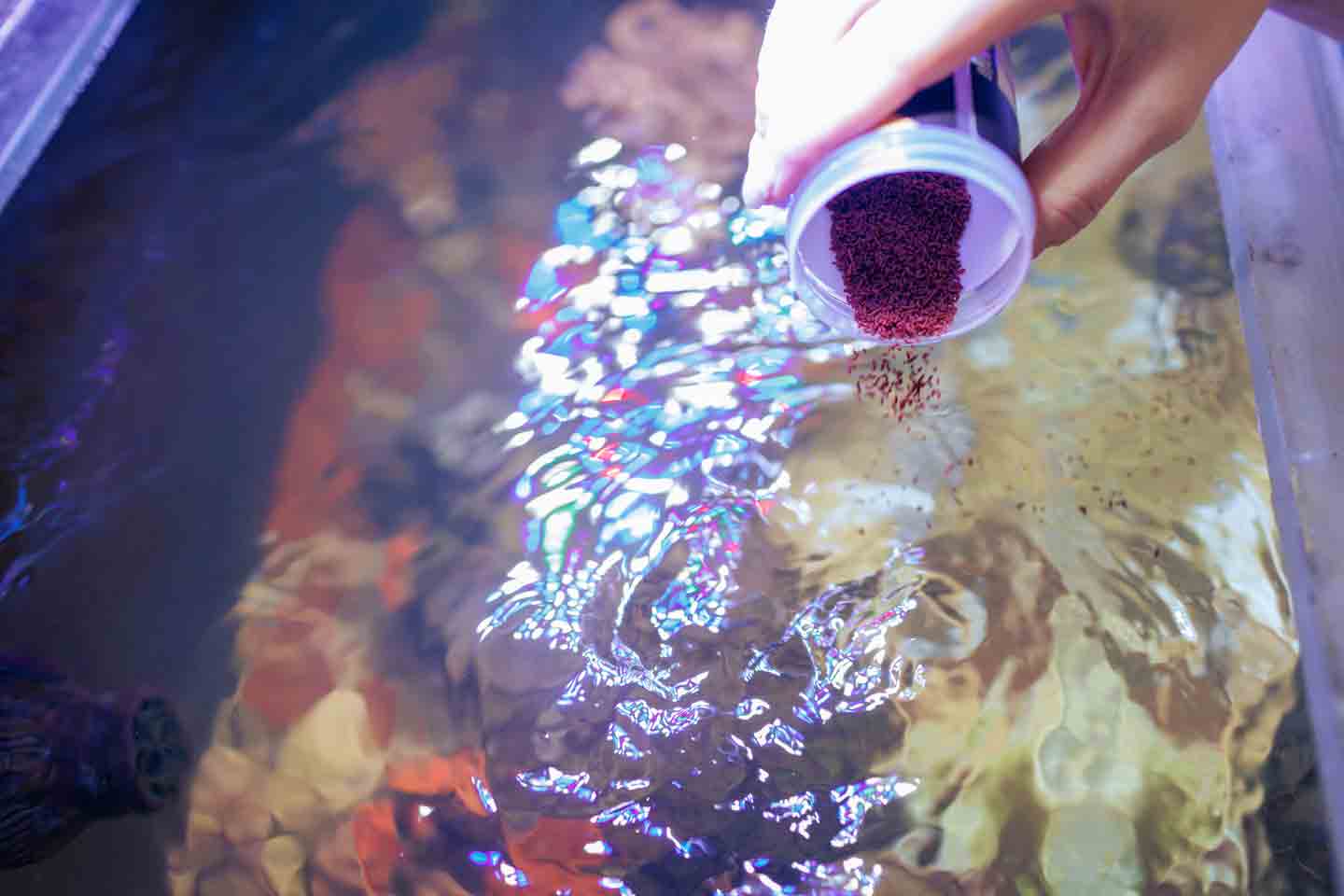
vgajic via Getty Images
Different Fish Diets
Like other animals, different species of fish follow specific types of diet. The three main categories of fish diets are herbivores, carnivores and omnivores.
Feeding your fish the wrong type of diet may put them at risk for malnutrition and disease. To avoid this, make sure you research the type of fish you want in your tank. A little research goes a long way in ensuring that you’re able to provide exactly what your fish need.
Let’s dive into the details of the three most common fish diets.
Herbivore
Herbivorous fish are plant eaters, so they require a diet of plant-based foods like plankton, algae and vegetables.
Saltwater fish that are herbivores include:
- Surgeonfish
- Parrotfish
- Damselfish
- Rabbitfish
In addition to commercial herbivore flakes, pellets and algae wafers, you can offer these fish fresh vegetables. Popular options include:
- Zucchini
- Cucumber
- Romaine lettuce
- Spinach
- Sweet potato
Blanching vegetables before offering them makes them easier for fish to eat, though they should be removed after 24 hours if not eaten to prevent them from decomposing too much.
Carnivore
On the opposite end of the spectrum from herbivores, carnivorous fish are meat eaters—they primarily eat other fish as well as insects and crustaceans.
Popular examples of carnivorous aquarium fish include:
- Betta fish
- Oscars
- Triggerfish
- Puffer fish
Carnivorous fish can be offered a variety of meat-based live, frozen and freeze-dried foods. Depending on the species, these may include:
- Worms
- Insect larvae
- Shrimp
- Snails
- Other fish
Research the type of fish you plan to raise to make sure you can provide the right diet.
Be careful when offering other fish to predatory fish species, especially if you don’t raise them yourself. In pet stores, feeder fish may not be quarantined the way ornamental fish are and you don’t want to risk introducing pathogens into your tank. Either quarantine feeder fish for two weeks to ensure they are healthy or breed them yourself at home.
Omnivore
The majority of popular aquarium fish species are omnivores—they eat both plants and animals. These include:
- Plecostomus
- Bristlenose catfish
- Severum cichlids
- Guppies
- Angelfish
- Most tetra species
- Many bottom-feeders
- Invertebrates like snails and shrimp
Omnivorous fish can be offered a variety of flakes, pellets and wafers as well as live, frozen and freeze-dried fish foods.
How Much To Feed Your Fish
It’s important to feed your fish a diet that is biologically appropriate and in a type of food that delivers nutrients efficiently. In other words, small foods should be given to small fish and large foods to larger fish.
The Merck Veterinary Manual offers this example: “Feeding flaked feed to a large fish like an oscar or other cichlid will result in a messy tank, given that larger fish cannot easily ingest enough flaked feed to meet their requirements.”
It’s easy to overestimate the amount of food that aquarium fish require to meet their nutritional needs. As a general rule, it’s better to underfeed than overfeed. Give your fish an amount of food they can consume within two to five minutes, and remove excess food using a siphon vacuum to keep it from affecting your water quality.
Pro Tip: It’s a bad idea to purchase fish food in larger quantities than you can use quickly. The water-soluble vitamins in fish food start to degrade when exposed to oxygen, so the food loses some of its nutritional value over time. “Once you open a container or bag of fish food,” says Dr. Brenner, “use it within six months, regardless of the expiration date.”
How Often To Feed Your Fish
In the wild, many types of fish are opportunistic feeders—they’ll eat whenever food is available. The same is true for fish kept in aquariums. How often you feed your fish should depend on the availability of natural food sources.
For example, algae-eating species of fish like otocinclus catfish will eat natural algae growth as well as biofilm and decaying plant matter. However, unless the tank is large enough to supply these foods in abundance, they’ll likely need supplemental food. This applies to grazing species of marine fish as well (like tangs).
Amanda Fredal, LVT, a veterinary technician in Richmond County, Georgia, and a member of the Aquatics Committee for the Pet Advocacy Network, says “offering food at least once a day is needed in a reef tank” when just starting. “In an established reef tank,” she says, “feeding every few days may be more suited if you have plankton or copepod colonies fish can hunt for.”
In cases where commercial foods make up the majority of a fish’s intake, one or two daily meals are generally sufficient. The key is to feed small amounts so the fish can properly digest the food and there’s no excess left to break down in the tank.
How To Avoid Overfeeding Your Fish
The consequences of overfeeding are easy to see in cats and dogs, and fish can become overweight, too. Dr. Brenner suggests this is particularly common with goldfish. Regardless of species, however, she says that “any excess food becomes waste in the tank.” Then, as it decomposes, that uneaten food produces ammonia, which can negatively affect water quality and harm your fish.
Here are some simple tips to avoid feeding fish too much:
- Offer your fish only as much as they can consume within two minutes.
- Feed very small amounts twice a day rather than one large meal.
- Offer food at the time of day your fish are most active.
- Choose foods appropriately sized for your fish’s mouth.
- Feed carnivorous fish who eat large meals every other day, not daily.
Another way to prevent excess fish food from breaking down in the aquarium is to ensure your fish can easily access the food you offer them. For example, the Merck Veterinary Manual says that bottom-dwellers be “fed items that rapidly sink.” Fish that feed from the surface should be fed floating foods, and slow-sinking pellets are ideal for species that occupy the middle level of the fish tank.
FAQs About Feeding Pet Fish
Can fish eat any food?
Fish bred for the aquarium hobby tend to accept a wider variety of foods than wild-caught specimens. Just because a fish can—and many will—eat any food offered to them, however, doesn’t mean the food is good for them. It’s important to feed your fish food that is formulated for their ideal diet type, whether herbivorous, carnivorous or omnivorous. Offering the wrong diet may put your fish at risk for nutrient deficiencies, which can negatively impact the fish’s metabolism and immunity.
What fruit can fish eat?
There are only about 200 known species of fruit-eating fish worldwide, but that isn’t to say your fish won’t enjoy fruit as an occasional snack. Your fish are most likely to enjoy small pieces of melon, apple, pear, mango, papaya, banana or berries. Keep in mind that some fruits will need to soften a bit before your fish will eat them, and be sure to remove them from the tank if they remain untouched for eight hours.
Feeding your fish a diet suited to their biological needs is a must if you want them to look their best and have the strength to fend off disease. If overfeeding has led to poor water quality in your aquarium, don’t stress—just follow our guide on how to clean a fish tank.
Attributions
Expert input was provided by Dr. Serena Brenner, MS, DVM, CertAqV, Consulting Veterinarian and Instructor at UC Davis School of Veterinary Medicine in Davis, California; Amanda Fredal, LVT, a veterinary technician and member of the Aquatics Committee for the Pet Advocacy Network, Richmond County, Georgia.
